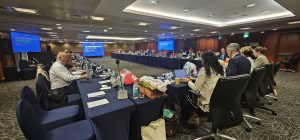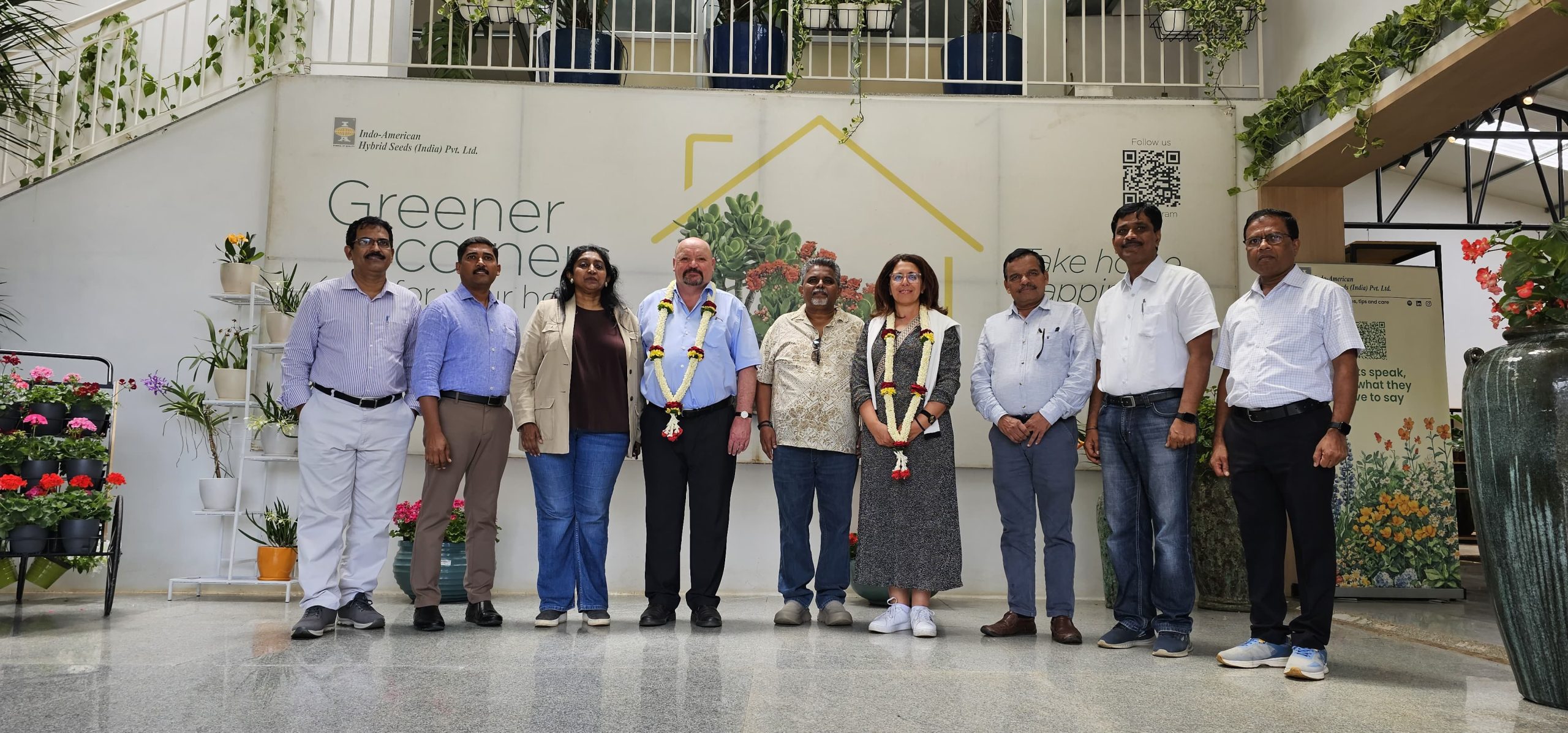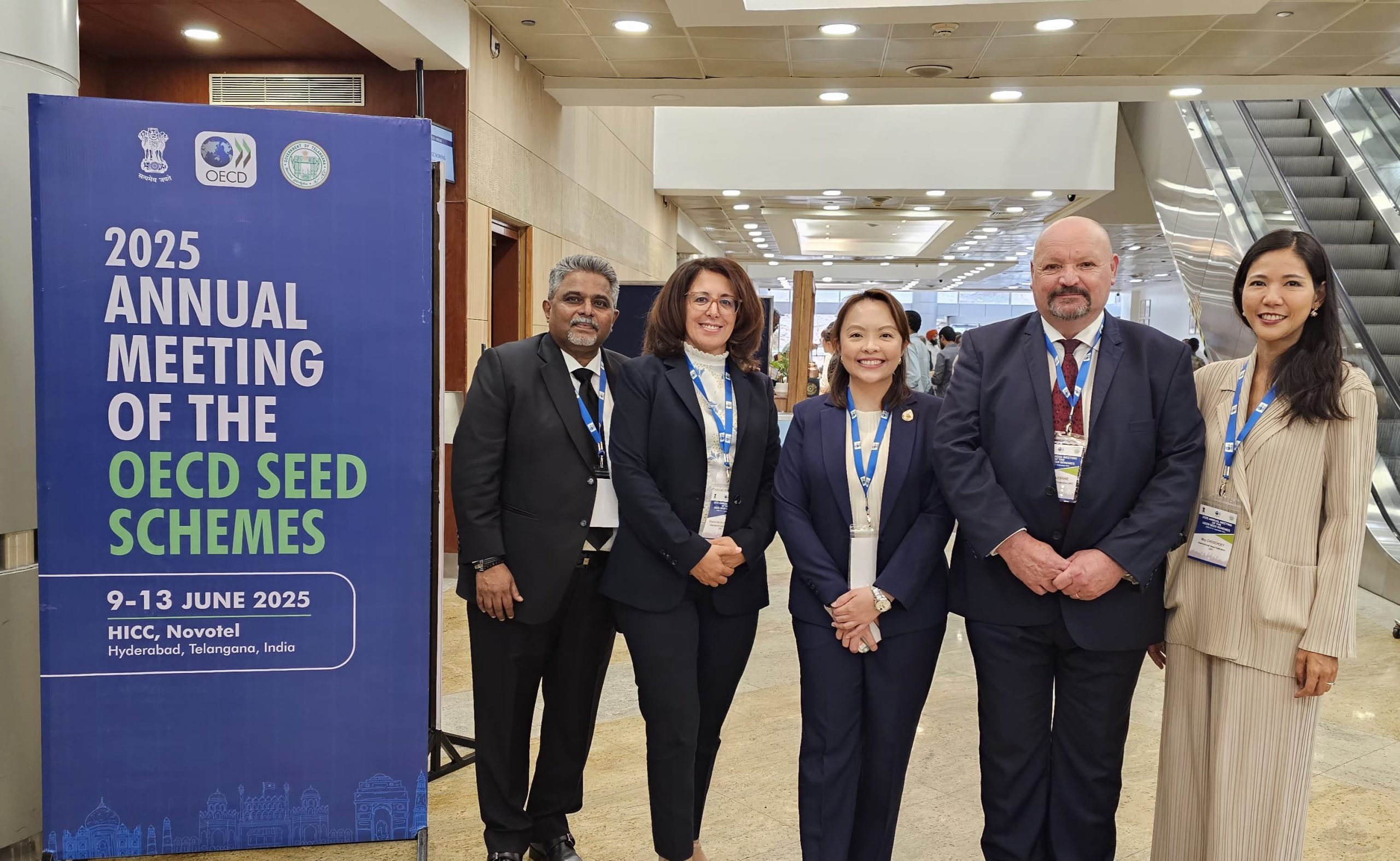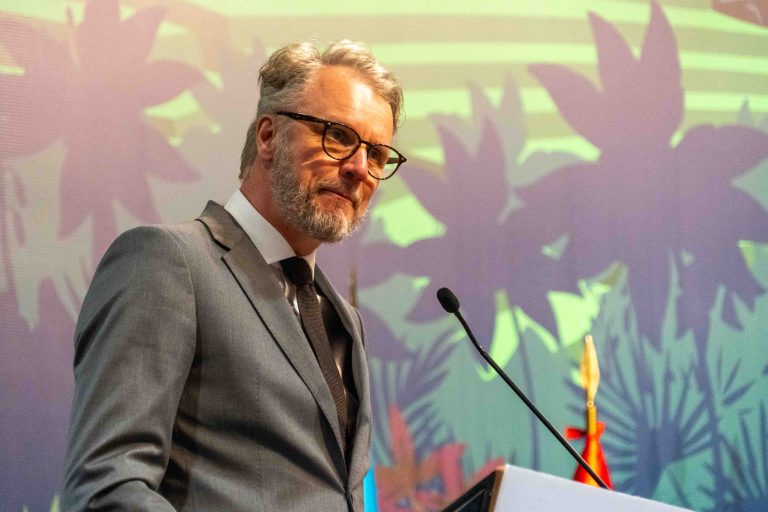From 9–13 June, ISF participated in the OECD Seed Schemes Annual Meeting held in Hyderabad, India. The meeting brings together government officials, industry leaders, and representatives of international organizations such as the International Seed Testing Association (ISTA) to discuss the future of the global seed trade.
Representing ISF were Khaoula Belhaj-Fragnière, ISF Regulatory Affairs Manager; Santosh Attavar, ISF President; Philippe Lesigne, CG Market Access and Trade (MAT) Chair; May Chodchoey CG MAT Vice-Chair; and Karen Withers, ASTA.
After the meetings, ISF also had the opportunity to visit a family-owned international seed company based in Bangalore, India, Indo-American Hybrid Seeds.
OECD Workshop on Seed Certification in Southeast Asia
The workshop on Seed Certification in Southeast Asia, held back-to-back with the OECD meeting, aimed to address the urgent need to align national regulations with international certification standards. Notably, only four APAC countries currently participate in the OECD Seed Schemes.
The session emphasized the need for resilient, transparent, and harmonized seed systems to support regional and global food security.
“High-quality seeds are a cornerstone of competitive and resilient agriculture. The OECD Seed Schemes provide the globally harmonized framework to support this. But to unlock their full potential, we need integrated regulatory systems—where certification, innovation, IP, and trade policy advance together.”
OECD Seed Schemes Annual Meeting
This year’s agenda covered a wide range of topics, including: Digitalization of the OECD Seed Schemes, with stress tests conducted by the OECD and discussions on financing mechanisms; Hybrid wheat developments and certification systems; A joint biomolecular techniques project with ISTA, UPOV, and OECD; Multiplication abroad of parental lines; The formation of a new Traceability Group through the merger of the Labeling and Digitalization working groups; and updates on capacity building programs and the G7-OECD project, among others.

With over 500 seed institutions and annual exports of USD 1.8 billion, India is an increasingly significant player in the global seed trade. Since joining the OECD Seed Schemes in 2008, the first milestone was achieved in 2017, when the first OECD-certified seed consignment was from Telangana State, the host of this year’s OECD Seed Schemes meeting.
However, regulatory fragmentation, limited awareness of OECD labels by local seed industry, and capacity gaps remain hurdles—particularly in Southeast Asia.
“India is ready to collaborate, no country can succeed alone – Spread the word: India is on track to become a global hub for seed production,” shared Mr. Pattanayak.
Looking ahead, India aims to finalize and implement a new Seed Act to address existing inconsistencies, enhance international collaboration, and embrace emerging breeding technologies like genome editing and others such as AI and blockchain to improve transparency and traceability in the seed supply chain.
India’s seed sector was in the spotlight, with over 500 seed institutions and $1.8 billion in exports.
Visit to Indo-American Hybrid Seeds in Bangalore
Khaoula Belhaj-Fragnière and Philippe Lesigne, Chair of the Coordination Group on Market Access & Trade, had the pleasure of visiting the headquarters of Indo-American Hybrid Seeds in Bangalore, India.
They were warmly welcomed by the ISF President and Indam Managing Director, Arthur Santosh Attavar, Rashmi Attavar, and their dedicated team.

ISF would like to extend a heartfelt thanks to Santosh and Rashmi Attavar for their generous hospitality and for sharing the inspiring story behind their family business.#



